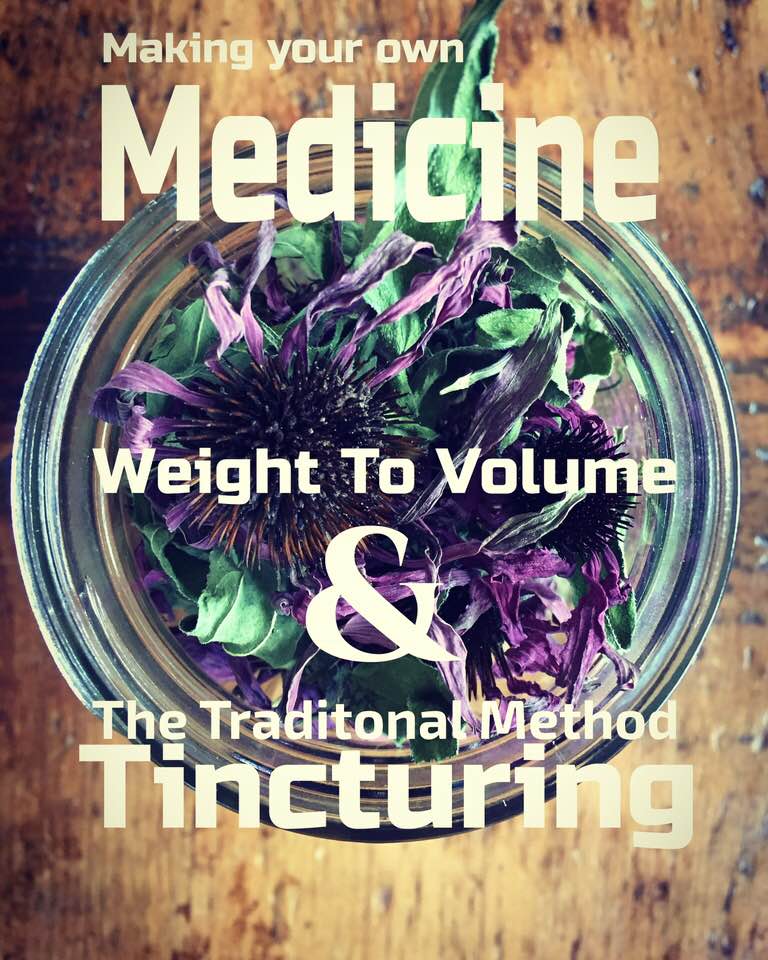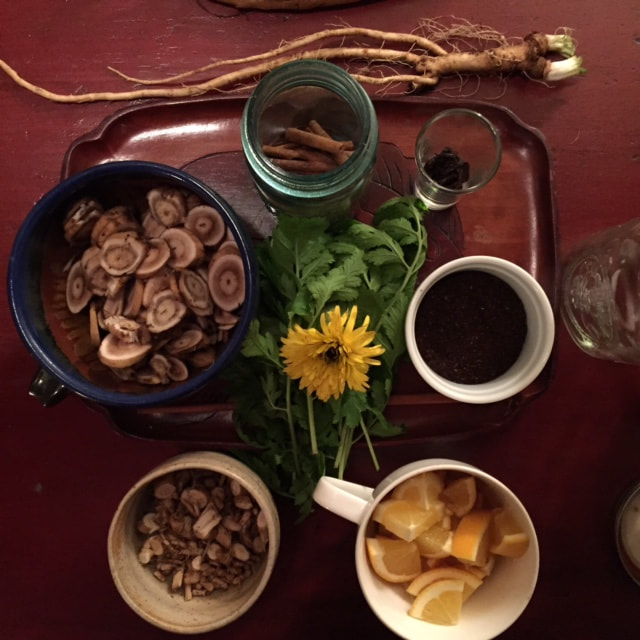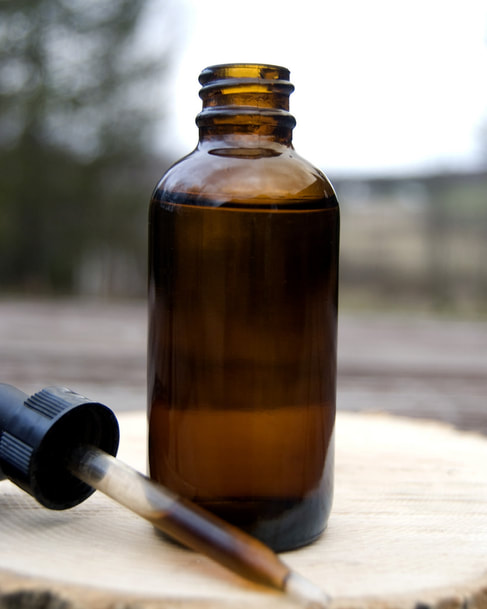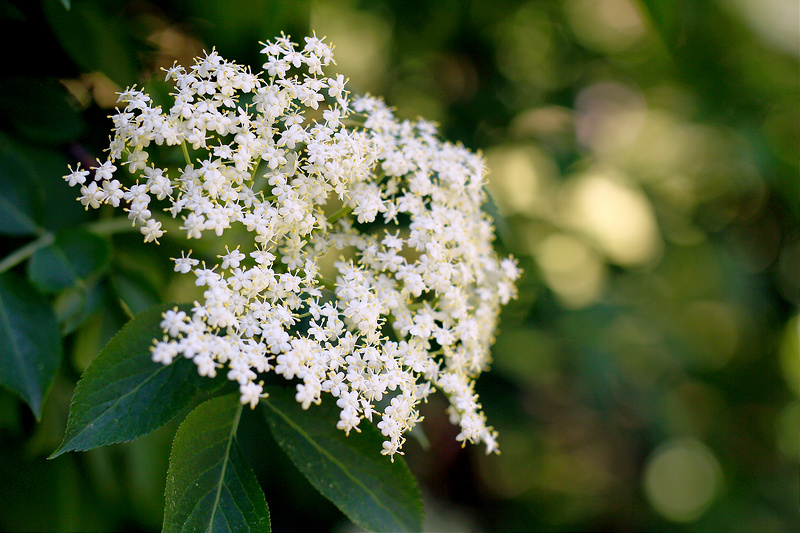Making Your Own MedicineWith millions of articles and books on how to tincture and all the different nuances of this form of medicine making, I completely overlooked actually adding my two cents to this well covered topic. Seems fitting to have a post and an herbal council this month dedicated to keeping this kind of medicine making in the home apothecaries I so want to see all of you have at your fingertips. Thank you for venturing in for a bit to take in some medicine tending. So, the oldest and best way in my experience to make medicine from plants is to add them to water. Yup. So gorgeously simple! And you already know some or all of this I bet. These would be called teas (steep 5-10 minutes), infusions (steeped 1-8 hours), and decoctions (simmered 20 minutes or more). Cooking the plants in water is my first and favorite way of medicine making and links me up to my ancestral path for we all have a great auntie or grandparent who knew the plants for medicine and were most likely a well known healer in their time. The smell and taste takes me there. There are times, however, when a later form of medicine, called a tincture, or plant extract, really shines. These are concentrated plants extracts taken by the drop using a menstruum (vinegar, glycerin, or alcohol) to extract the medicine and sometimes some of the nutrients too, depending on the menstruum chosen. Here's why tincture making skills jumped into the healer's medicine bag as we traveled through time: 1- Longevity and Stability: An herb, once tinctured, will retain its medicinal qualities far longer than in most other preparations. Alcohol tinctures will last for many years. I do make smaller batches and use them up, and make new. Plus they're heavy to move and we moved twice with a ridiculous number of jars! I suggest making small batches for home apothecary tending. This way you can increase your variety of plants at your finger tips. 2- Easy to Administer and Travel With: Once prepared in tincture form, the herb is ready to administer with no further preparation. The tinctures are dispensed directly under the tongue or mixed with warm water, tea, or juice and can be tucked into travel bags easy. Just be sure you know the rules for flying with liquids or they'll confiscate your precious medicines. 3- Ease of Preparation: Anyone is capable of making high quality tinctures. All one needs is good quality herbs, a high quality solvent or menstruum (your solvents are alcohol, vinegar, or glycerin), a measuring cup, jar, labels, a dark place to store them, and a little time with lots of love for the process. You're making medicine. It's truly amazing when you step back and look at it all. 4- Storage: Easy if you contain your excitement and make small batches! Tinctures store compactly and conveniently in a small space, always ready to use. They're excellent for first aid kits too. 5- Cost Effective: Tinctures are becoming extremely expensive to purchase today making it prohibitive for people to afford their medicine. This is “the people's medicine" – our original medicine and is a birthright to have access to it. So I teach how. Period. It's not hard and so much better to make yourself if you can. What you're paying for is more about the person’s time to make it for you. If this may be what you need, I make for people too. But know you can do it too anytime you want to. 6- Personalized Formulas: As you learn to work with various herbs, you'll develop favorite ones that just call to you. Your needs will change over time and making your own gives you the creative freedom to design tincture combinations and formulas from your home apothecary. 7- Selecting the Herbs: Almost all herbs tincture well with the correct solvent. Herbs can be tinctured as a ready-made formula or tinctured as single herbs and combined later into formulas. Most herbalists prefer to tincture herbs as single extracts. This gives them greater control of the water/alcohol ratio for individual herbs and their constituents. It also allows greater flexibility and creativity when crafting formulas. I do make formulas this way professionally but for my family I make smaller jars of the herbs mixed together fresh and they tincture all together. It’s easier and keeps me humbly rooted in tending to my loved ones. I love, love, love the way they turn out. You get to decide what works for you. 8- Selecting the Menstruum: The menstruum is the solvent used to extract the biochemical constituents (yes, fancy lingo for the medicine and nutrients) of the plant, and to preserve the resulting solution. There are basically three menstruums used in tincture preparations: alcohol, vinegar, and glycerin. Like anything, there are pros and cons to each (more below on this); and like anything, everyone has their personal favorite and considers it the best. There are some intricate things to consider for each. Alcohol sensitivity (means vinegar and glycerin options only), after the nutritional properties (these extract better in vinegar and glycerin), when to utilize heat for better extraction (I warm glycerites), longest shelf life and extraction stronger compounds without heat (alcohol shines here), and dosing considerations (I increase doses with vinegar and glycerin tinctures). Steps to Tincturing the Traditional Folk Medicine Way
Menstruum (Solvent) Choices(Here's a little excerpt from "Birthing an Herbalist in 13 Moons" at ElderMoon School of Herbs on-line herbalist training journey with the medicine plants.) The following is a list of the solvents (mentsruums) commonly utilized in making herbal tinctures and some guidelines for what plant constituents they most effectively dissolve: 1. ALCOHOL Alcohol has both prolonged keeping power and serves as a powerful solvent or extractor. It has the ability to break down, absorb, and preserve much of the plant material. There are many varieties of alcohol used, though every herbalist has their favorite: brandy, rum, vodka, gin, Everclear, and 190 proof grain or potato. Alcohol that has a natural water constituent (such as those listed above) is called 'Aqueous Ethanol' and generally has a water to alcohol ratio of 40-95% alcohol. Aqueous Ethanol dissolves: alkaloids (limited), organic salts, organic acids, most glucosides, sugars, vitamins, minerals, enzymes, tannins, bitter compounds. Absolute Alcohol, or Pure Grain Alcohol, is more effective for dissolving resinous and waxy material. It is used to dissolve: wax, resin, fat, balsam, oleoresin, glycosides, some alkaloids, sugars, vitamins, volatile oils. Easy Starting Point: Begin tincturing with 100 proof potato vodka. (50% alcohol and 50% water). 2. GLYCERIN Glycerine is a chemical constituent of all the fatty oils from both animals and vegetables. An excellent nutritive solvent, glycerin does not have quite the versatility of either water or alcohol, but its advantages are that it tastes good because it’s sweet, is safe and effective for children, and is in and of itself very nourishing and soothing. It dissolves: sugars, enzymes (dilute), glucosides, bitter compounds, saponins (dilute), tannins, minerals, vitamins. Glycerine also has excellent preservative qualities. It’s great for children’s preparations and for those refraining from alcohol where the use of alcohol in tinctures would be prohibitive. Be sure to request Vegetable Glycerin when buying; it is of a much higher quality. Vegetable Glycerin is available at many natural food stores and herb stores. These tinctures require a period of warming and a slight dilution with water in making them. Quick note for the curious: we dilute 4:1 with distilled (mineral hungry) water, chop herbs small using the same proportions given above, and warm the closed jar in a water bath for a few days at the start and again at the finish (we use a crock pot on lowest setting) with a total of 6-8 weeks of sitting and shaking occasionally. These are also light sensitive so tend well to preserve the medicine. 3. VINEGAR I used to teach a FOUR hour class on vinegar and herbs! Water is the first and made by the Divine which is why it's the best solvent to start with as a budding herbalist. Vinegar, especially apple cider vinegar, is one of the oldest solvents used. However, it's not highly regarded today by many herbalists or medicine making companies and is considered secondary to alcohol as a solvent due to the greater strength of and shelf life of alcohol. Though not as strong as alcohol, it has other definite advantages and should not be ignored. Apple Cider Vinegar contains minute quantities of trace minerals our bodies crave and has a mild acidity that balances and aids digestion. The acetic acid and potassium content help to activate the friendly bacteria in the digestive track. I highly recommend Vinegar as a solvent for tonifying/nutritious herbs and for preparations that are taken over a long period of time for health maintenance, such as in high vitamin mineral formulas and tonic formulas. Vinegar is an excellent solvent for children’s formulas and for alcohol sensitive folks too. Vinegar tinctures are excellent for extracting some plant alkaloids (such as lobeline from Lobelia), but are not as good for extracting the more acidic biochemical ingredients and so doses are usually doubled as a general rule for making sure one gets the proper amount of the more medicinal compounds. A commonly taught thing about Vinegar Tinctures is that they “will not last very long”. Most say 6 months. I disagree and have not had one spoil yet and many herbalists I know agree. What I teach is make enough to get to the next harvest (plus a little extra is my practice). When a vinegar tincture goes bad (and you WILL know) it's usually the quality of the vinegar and it will smell sour and have fermentation bubbles forming around the edges. Non-pasteurized live vinegar will sometimes form a mother and this is fine. It means it's alive, not spoiled, and you just have to remove “the mother” at the surface – which can be used to make more vinegar. Using the rule of one season to the next keeps your stock moving and freshness then remains at the top of your practice too. Happy Tincturing and Apothecary TendingThis month we are deepening our tincturing skills at ElderMoon School in our Monthly Herbal Councils. We'll cover weight-to-volume tincturing as another step beyond this traditional way. While the traditional folk way is absolutely enough, some want to deepen their practice with medicine making. We'll cover the climate within the herbal circles as they attempt to justify and legitimize their existence by standardizing. There is a place for this as herbalism evolves. In the end we all usually come back around to water based preparations made from plants we tended and stored in our own apothecary (smile) but it's so good to travel the road anyway and come back to that and be in community too all along the way, eh? We'll speak to all of this in council. Do check out the recorded and archived herbal councils each month (BTW free if you're already a student in other courses here at ElderMoon School). It's so worth the low commitment simple hour a month to plug in and enjoy 'talking plant' in community. Much Love, Jen
0 Comments
|
Details
Jennifer Costa, Herbalist-RN, Teacher, Botanist BS, EM-CST, and Founder of ElderMoon School of Herbs & Earth MedicineCategories
All
Archives
January 2023
|




 RSS Feed
RSS Feed